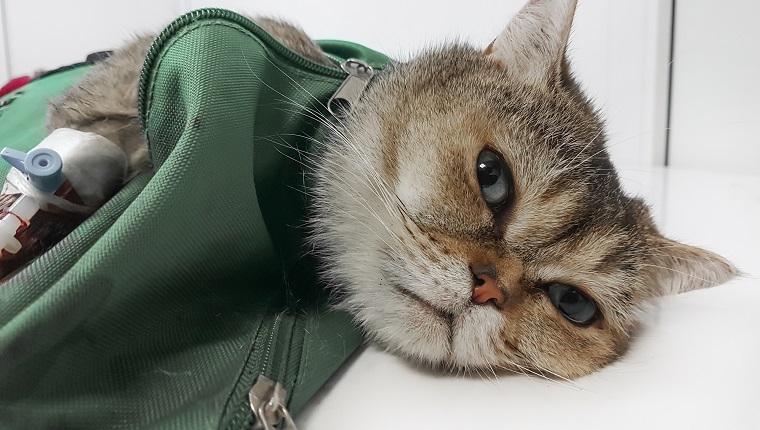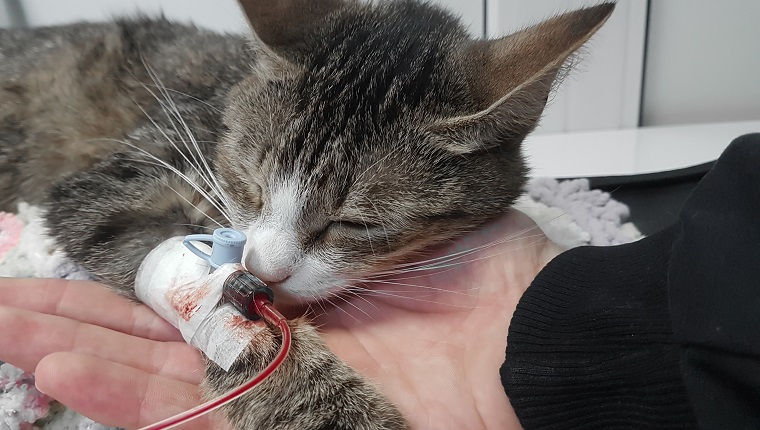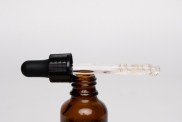Blood transfusion reactions in cats occur when the process of undergoing a blood transfusion prompts a negative reaction from the cat’s body. It is estimated that between 5 and 25 percent of cats are likely to have some sort of reaction to a blood transfusion.
Symptoms frequently present themselves almost immediately after the procedure; although in some cases, the reaction might be delayed. In general, purebred cats have the highest risk of experiencing a negative reaction.
If you see signs that your cat might be suffering from a bad reaction after undergoing a blood transfusion, then you must consult your veterinarian for a proper diagnosis and course of treatment. Here’s what you should know about the symptoms, causes, and treatments of blood transfusion reactions in cats.
Symptoms Of Blood Transfusion Reactions In Cats
Blood transfusion reactions in cats can bring about a range of symptoms, with many of them based around a negative immune system response. Some of the most general symptoms include:
- Fever
- Shock
- Heart failure
- Septicemia
- Hypothermia (from blood that’s too cold)
- Vomiting
- Incontinence
Causes Of Blood Transfusion Reactions In Cats

Blood transfusion reactions in cats can result from a wide range of causes. Some of the most common causes include:
- Transfusion carried out too quickly
- Improper storing of blood
- Using contaminated blood
- Mismatched blood type
- Using blood from an infected donor
Treatments For Blood Transfusion Reactions In Cats
If your kitty experiences a blood transfusion reaction, your vet will want to treat any immediate clinical symptoms that present themselves.
The vet may use urine tests and blood tests to figure out the cause of any negative reactions. They may also look for signs of bacteria that might be present in the blood of the donor.
When it comes to treatment, supportive care is vital. This often involves the use of intravenous fluids. Vets also often prescribe medication.
As ever, if your vet prescribes your kitty any medicine, it is vital that you stick to the precise dosage and frequency instructions, along with completing the full course of medication.
In general, the chances of negative reactions can be minimized by making sure that thorough tests and checks are carried out before any procedure takes place. This is to ensure that any donor’s blood is a safe match for your cat.
Has your cat ever had a bad reaction to a blood transfusion? How did your vet help your kitty safely recover? Tell us all about it in the comments below.









